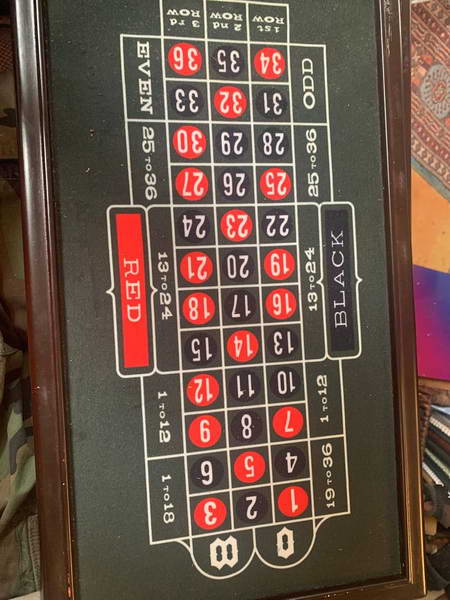

Engaging in thrilling table encounters has long captured the attention of enthusiasts seeking a blend of skill and luck. Within this realm, players often strive for mastery over simple yet intricate challenges that arise during gameplay. As participants navigate through hands, understanding the nuances of effective techniques becomes paramount for enhancing overall success.
Every interactions brings forth unique situations, allowing players to forge their own paths while employing specific methodologies to maximize their potential. As competitors develop a deeper comprehension of gameplay dynamics, they can make informed choices that significantly impact their results. Analyzing various approaches helps to unveil crucial elements that can lead to remarkable victories.
In this insightful examination, we will delve into practical approaches that can empower individuals while they engage in this captivating pursuit. By equipping oneself with valuable insights, players can enhance their decision-making processes and cultivate an advantage over opponents, ultimately elevating their overall experience at the table.
Enhancing your skills in this engaging variation of traditional card games requires understanding its unique mechanics and applying effective tactics. Grasping the nuances of play is vital for maximizing your winning potential and having an enjoyable experience at the table. Here, we delve into essential components that can elevate your proficiency.
One of the primary aspects to focus on is learning the rankings of hands and knowing which combinations are most favorable. By familiarizing yourself with these rankings, you can make informed decisions during play. Let’s take a closer look at the hand rankings:
In addition to understanding hand rankings, it is crucial to develop a keen sense of strategic betting. Assessing your opponents’ tendencies and adjusting your approach accordingly can greatly influence the outcome. Balancing aggression with caution enables you to stay competitive. Always consider the dynamics at the table, and don’t shy away from playing smartly based on the information available.
With practice and a solid grasp of these elements, you will find yourself becoming a formidable player in this exciting card arena.
The essence of this intriguing variation revolves around a quick-paced format that captures the excitement of competitive play while requiring sharp decision-making skills. Players engage with a simplified structure that combines elements of chance and strategy, making it accessible to both novices and seasoned participants alike.
In this specific realm, participants are dealt three playing pieces, and the objective shifts towards forming the most advantageous combination. Key hands are ranked similarly to standard variations, providing familiar ground for aficionados. Moreover, the gameplay often incorporates additional betting options that enhance the thrill of each round.
Essential skills include understanding the rankings of hands and making informed choices on wagering. Knowledge of probabilities is equally important, as it aids in determining risk levels associated with different actions during play. As players gain experience, they learn to evaluate their hands in conjunction with the dealer’s potential outcomes, fostering a strategic mindset conducive to success.
Many players often fall into specific traps that can hinder their success while engaging in friendly competitions. Recognizing these pitfalls is essential for enhancing one’s overall experience and outcomes. By being aware of common errors, enthusiasts can make more informed decisions and increase their chances of winning.
One frequent misstep is playing too many hands. Newcomers often feel compelled to participate in every round, which can lead to poor choices and wasted resources. A smarter approach is to be selective and only engage in promising situations.
Another error involves neglecting the importance of understanding the rules. Insufficient knowledge can lead to misunderstandings and, ultimately, unfavorable results. Players should take the time to familiarize themselves with the nuances and intricacies of the activity they are involved in.
A lack of emotional control is also a significant concern. Allowing frustration or excitement to dictate actions can result in rash decisions and regretful moves. Maintaining composure and making calculated choices is crucial for long-term success.
Additionally, chasing losses is a common flaw. The urge to recover lost resources quickly can lead to further financial setbacks. It is vital to approach the experience with a realistic mindset and an understanding that losses are a part of the journey.
By acknowledging these common blunders, players can enhance their skills and enjoy a more rewarding experience.
One common pitfall players encounter is the tendency to wager excessively on hands that lack strength. This approach can lead to significant losses and missed opportunities for better plays. Understanding the implications of this tactic is essential for any participant looking to enhance their skills and overall gameplay.
When one chooses to place large bets with inferior holdings, the intention is often to intimidate opponents or force them to fold. However, this method can backfire and result in decreased chip stacks, especially if other players call or raise. In essence, overcommitting to a weak position can create a false sense of confidence, ultimately undermining a player’s strategic foundation.
Moreover, regularly engaging in this practice may draw unwanted attention from fellow competitors. They might start to recognize a pattern, making it easier for them to exploit the tendency. It is crucial to balance aggression with a solid assessment of one’s hand strength, and opting for a more calculated approach can yield better results in the long run.
In conclusion, being mindful of overextending one’s bets with weaker hands can safeguard valuable resources and contribute to a more sustainable strategy. Adopting a disciplined mindset will not only enhance decision-making but also improve the overall experience at the table.
When engaging in this particular type of gambling activity, many players might overlook a crucial aspect of gameplay. Understanding the role of the opponent’s hand can significantly affect decision-making and, ultimately, outcomes. Neglecting to take this component into account can lead to missed opportunities and increased risk.
Focusing solely on your own cards might seem beneficial initially, but it is essential to consider how the dealer’s hand could influence your choices. Here are some key points to remember:
Assess potential outcomes based on estimated card combinations.
Recognize how the dealer’s hand interacts with your own.
Evaluate the stakes involved in every decision made.
By integrating these factors into your approach, you can enhance your gameplay and make more informed decisions. Ignoring the dealer’s hand can lead to an overly simplistic strategy that fails to capitalize on the complexities of fortune.
Always weigh the potential strength of your opponent’s hand.
Adapt your tactics based on the observed gameplay of the dealer.
Utilize statistical analysis to gauge risk versus reward accurately.
Incorporating these considerations can lead to a more profound understanding of the dynamics at play and, in turn, improve your performance overall.
Improving your approach to this intriguing variant can significantly elevate your overall performance. By mastering essential techniques and understanding core principles, players can increase their chances of success. This section outlines key elements to consider for a more effective experience.
Below are crucial aspects that can help refine your gameplay:
Understand the Hand Rankings: Familiarity with how different combinations rank is vital. Knowing the hierarchy allows for informed decisions during each round.
Practice Solid Betting Techniques: Determining when to place a wager and when to fold can shape your overall outcome. Consider your hand strength and the dealer’s face card before committing.
Learn to Read Opponents: Observing the behavior and betting patterns of rivals can provide insights into their hand strength, enabling you to adjust your strategy accordingly.
Manage Your Bankroll Wisely: Effective money management is crucial. Setting limits and sticking to them helps mitigate losses and prolong your gameplay.
Incorporating these elements into your routine can lead to noteworthy improvements in how you navigate this exciting pursuit. As you become more proficient, confidence will grow, further boosting your performance at the table.
Achieving success in a competitive environment often hinges on making calculated decisions regarding your wagers. Understanding when to increase your stakes and when to hold back can significantly influence your overall performance. This section delves into effective methods to enhance your betting approach.
Assessing Your Position: Evaluate where you stand relative to the other participants before making any commitments. Knowledge of your own hand and the likelihood of winning plays a crucial role.
Bankroll Management: Establish a clear budget and adhere to it. Proper allocation of funds is essential to sustain long-term participation without financial strain.
Adjusting to Opponents: Observe the tendencies of fellow players. Adapt your betting style based on their actions to exploit weaknesses.
Progressive Betting: Consider implementing a system where you gradually increase your stakes after wins and decrease them following losses. This can help balance out risk and reward.
Identifying Opportunities: Stay alert for specific situations where placing a higher bet is advantageous, such as favorable outcomes or weak opposition hands.
By employing these approaches, you can refine your staking techniques, ultimately leading to a more advantageous position in competitive settings.
The choices made before the main action begins can significantly impact the overall outcome of the session. Understanding when to engage actively or hold back is crucial for maximizing the potential benefits and minimizing risks. This section delves into the factors influencing these early decisions and offers insights into optimal behaviors.
Evaluating your hand alongside assessing the dealer’s upcard is key to making informed choices. Experience and intuition play significant roles in achieving an effective approach to these preliminary decisions. Each option carries its inherent risks and advantages, which can be balanced through careful consideration and strategic thinking.